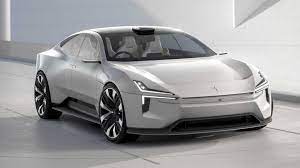
Breaking News
 Powerful Pro-life Ad Set to Air During Super Bowl 'Adoption is an Option' (Video)
Powerful Pro-life Ad Set to Air During Super Bowl 'Adoption is an Option' (Video)
 Even in Winter, the Sun Still Shines in These Citrus Recipes
Even in Winter, the Sun Still Shines in These Citrus Recipes
 Dates: The Ancient Fertility Remedy Modern Medicine Ignores Amid Record Low Birth Rates
Dates: The Ancient Fertility Remedy Modern Medicine Ignores Amid Record Low Birth Rates
 Amazon's $200 Billion Spending Shock Reveals Big Tech's Centralization Crisis
Amazon's $200 Billion Spending Shock Reveals Big Tech's Centralization Crisis
Top Tech News
 SpaceX Authorized to Increase High Speed Internet Download Speeds 5X Through 2026
SpaceX Authorized to Increase High Speed Internet Download Speeds 5X Through 2026
 Space AI is the Key to the Technological Singularity
Space AI is the Key to the Technological Singularity
 Velocitor X-1 eVTOL could be beating the traffic in just a year
Velocitor X-1 eVTOL could be beating the traffic in just a year
 Starlink smasher? China claims world's best high-powered microwave weapon
Starlink smasher? China claims world's best high-powered microwave weapon
 Wood scraps turn 'useless' desert sand into concrete
Wood scraps turn 'useless' desert sand into concrete
 Let's Do a Detailed Review of Zorin -- Is This Good for Ex-Windows Users?
Let's Do a Detailed Review of Zorin -- Is This Good for Ex-Windows Users?
 The World's First Sodium-Ion Battery EV Is A Winter Range Monster
The World's First Sodium-Ion Battery EV Is A Winter Range Monster
 China's CATL 5C Battery Breakthrough will Make Most Combustion Engine Vehicles OBSOLETE
China's CATL 5C Battery Breakthrough will Make Most Combustion Engine Vehicles OBSOLETE
 Study Shows Vaporizing E-Waste Makes it Easy to Recover Precious Metals at 13-Times Lower Costs
Study Shows Vaporizing E-Waste Makes it Easy to Recover Precious Metals at 13-Times Lower Costs
Polestar Reveals Three-Year Business Plan, Will Turn Profit In 2025

Polestar has had an interesting past. Founded in 1996 to build entrants in the Swedish Touring Car Championship, Polestar eventually became Volvo's official performance partner in 2011. Volvo Cars, itself owned by the Chinese company Geely, fully acquired Polestar in 2015, spinning it off into its own brand that builds EVs and plug-in hybrids using existing Volvo platforms and powertrains.
Polestar's position as a former motorsports company turned tuning house doesn't really jive with its current product lineup, though. As nice as the Polestar 1 grand touring coupe and Polestar 2 five-door crossover are, they don't exactly tango with racing cars in terms of driving excitement. Adding to the young brand's identity crisis, Volvo announced that its entire lineup would be free of internal combustion by 2030. What's the point of an electrified car wearing relatively unknown branding, especially if its much more established corporate partner is also planning on a lineup consisting only of EVs?

 Smart dust technology...
Smart dust technology...

